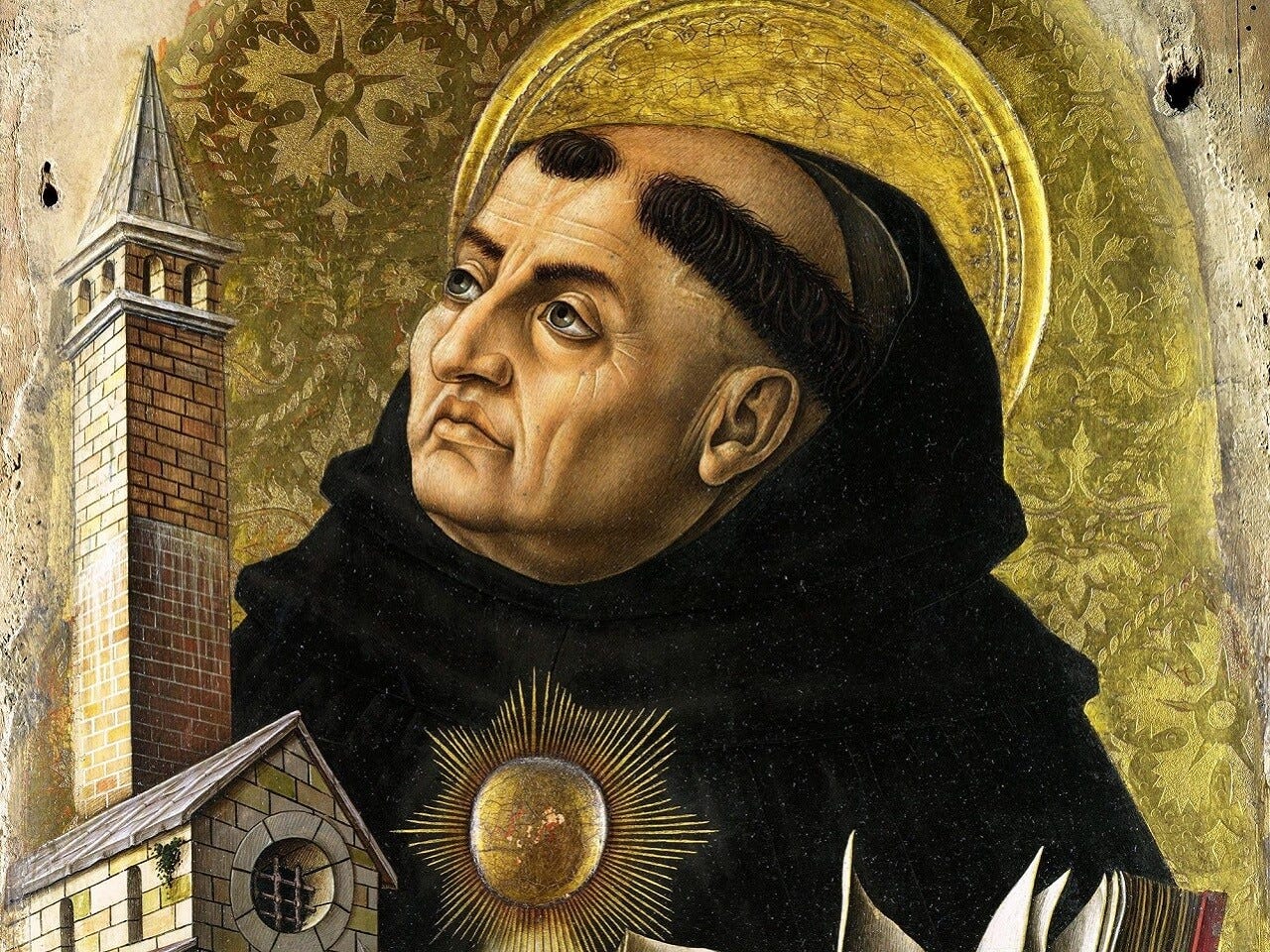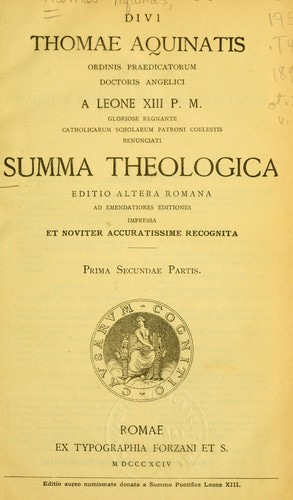Homily: Understanding the ‘angelic’ St. Thomas Aquinas
In St. Thomas, there was both great purity of mind and great purity of heart, which mutually reinforced each other.
(PerMariam) — Editor’s note: The following is a sermon delivered by Father Thomas Crean O.P. in 2021. He gave it for the feast of St. Thomas Aquinas, which is celebrated March 7 in the Church’s traditional calendar.
Admittedly, this post is one day late in celebrating the feast, but the reflection does not go out of date and is a very edifying read for any occasion. PerMariam is very grateful to Fr. Thomas for giving permission to republish his homily on this site.
“I loved her above health and beauty and chose to have her instead of light."
Among all the other saints and doctors of the Church, our brother St. Thomas Aquinas has received the title of ‘Angelic Doctor.’ This title, it seems, was conferred on him first of all spontaneously, by the sentiment of his confreres and of the Christian people; later it became an official title, bestowed on St Thomas by Pope St Pius V in the sixteenth century.
What does it mean, to be an angelic doctor? Applied to St. Thomas, the title suggests several aspects of his work and personality. In the first place, we could mention his own writings about the angels, which are a marvel of subtlety and depth, a happy marriage of Scripture and philosophy.
Next, the title ‘angelic doctor’ puts us in mind of St. Thomas’s undoubted purity, in defence of which he performed perhaps the only violent action of his life, driving out the young woman from his room with a firebrand.
And thirdly, we might explain the title by reference to his intelligence, so penetrating that it may seem to be more than merely human. Indeed, so great was his intelligence that I have sometimes experienced, when reading his writings, a feeling akin to fear; the kind of fear one would feel, I suppose, if one were to meet an angel in person.
But this ‘purity of gaze’ of St. Thomas, which we may well call ‘angelic,’ was something more than rapidity of thought and the ability to see conclusions in their premises. It was also and above all a single-mindedness, a power to look upon the whole of life in the light of life’s goal, namely, beatitude. “I called upon God, says the wise man, and the spirit of wisdom came upon me: and I preferred her before kingdoms and thrones, and esteemed riches nothing in comparison of her. […] I loved her above health and beauty, and chose to have her instead of light.”
In St. Thomas, there was both great purity of mind and great purity of heart, but these two qualities did not simply exist side-by-side: they mutually reinforced each other, or rather, they were only two aspects of a single élan towards God. A philosopher of the nineteenth century wrote a book entitled Purity of Heart is to Will One Thing. We might add: purity of intellect is to know one thing, or rather, to know one thing and to know all other things in its light.
This unity in the soul of St. Thomas manifests itself both in his life and in his writing. Sometimes it manifested itself in a way that is almost humorous. Perhaps you know the occasion when he was in one of the churches of his Order when a confrere appeared. St. Thomas greeted him fraternally, thinking that he had just arrived from a journey, not realising that this brother had died some days previously, and that it was his soul which he was now seeing. When the brother had explained the situation, and declared that having passed quickly through purgatory, he was now in paradise, St. Thomas began to put to him theological questions about the state of separated souls and the modality of the beatific vision. “Out of the fullness of the heart, the mouth speaks.”
His writings, also, are dominated by the theme of beatitude. The theme structures his greatest work, the Summa, and underlies many of its distinctive theses. If, in our human life, there can be no action which is neutral; if each concrete action is either good or bad, it is because each free action bears some relation to our end, and either brings us closer to it, or takes us further from it. If the virtues of the pagans, though not vices, cannot be called simply speaking virtues, it is because they do not incline their possessors, as true virtues must do, toward man’s final end.
This absorption in the thought of beatitude also underlies the politics of St. Thomas. If he was a defender of Christendom, upholding the subjection of the temporal sword to the spiritual one, it is because the spiritual power exists to bring man to his end, and “it is the end which commands.”
Thus in his work on kingship, written for the king of Cyprus, he explains that the highest ruler of any multitude must be the man who specialises in the final goal of human life; and he goes on to illustrate this principle with an example of startling relevance for today, in our world of lock-downs and curfews: “If the ultimate end,” he explains, “either of one man or the multitude were bodily life and the health of the body, then to rule would be the task of the doctor.”
Among fallen men, every virtue is the occasion of some danger. The danger that lies in wait for the single-minded man is fanaticism. The fanatic is impatient or uncomprehending of the weakness and hesitations of his fellows. His fault is not to be sure that he is right, but not to see how anyone else could think differently from himself.
If St. Thomas is not only a saint whom it is easy to admire, but also one whom it is easy to love, it is because in him there was nothing of the fanatic. His charity towards others was as uncomplicated as his mind. “He would weep for the sins of other people,” says his biographer, “with as much simplicity as if they had been his own.”
In the angelic doctor, there is no trace of ‘angelism’ – that is, the temptation to deal with others, or with oneself, as if one had to do with angels and not with men. Does he not tell us, in his treatise on the emotions, that the remedies for sadness include talking to friends and having a hot bath?
St. Thomas left this life a long time ago. But he is not far from us. For the vision of God which he so desired, this vision, as he himself tells us, makes charity to be perfect. And charity is always close to those who are loved. May he therefore intercede for us, and for all who seek to understand and pass on the saving doctrine, that we may be one day his companions in beatitude.





